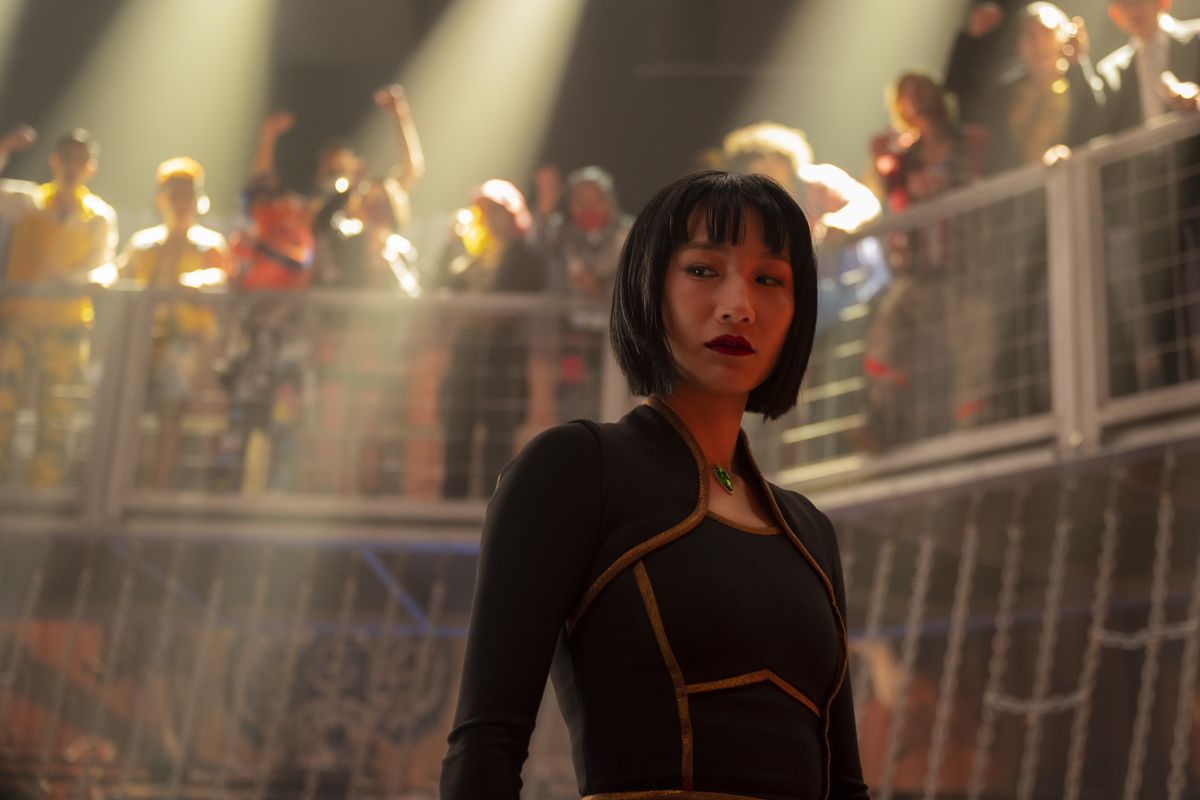‘Shang-Chi and the Legend of the Ten Rings’ is a welcome addition to MCU films

When it comes to the Marvel movies, the hope is that the talented directors they hire to helm each project can bring a bit of their own sensibility to the proceedings. Whether it’s Taika Waititi’s goofy humor that underscores “Thor: Ragnarok” or Ryan Coogler’s sense of soulful sorrow in “Black Panther,” the best of the MCU reveals what’s important to each filmmaker throughout the swirling action and densely packed lore of each superhero outing.
For Destin Daniel Cretton, the director and co-writer of “Shang-Chi and the Legend of the Ten Rings,” the first MCU installment centered around an Asian superhero, what he brings is a sense of deeply felt humanism and a willingness to inspect complex family dynamics.
Cretton’s work has always been suffused with empathy, from his breakout indie hit “Short Term 12” to his 2019 legal drama “Just Mercy,” and he’s tackled complicated families, both chosen and born, including in “The Glass Castle.” Cretton is able to apply an emotional heft to “Shang-Chi,” which follows a young Asian American man, Shaun (Simu Liu), as he learns to face his past and embrace his destiny as the superhero Shang-Chi.
Shaun’s family has a long and mystical history, one he eventually has to explain to his best friend Katy (Awkwafina), on a transatlantic flight to Macau, after the two fight off a machete-limbed supersoldier on a San Francisco city bus.
Dropping his Americanized name, Shang-Chi tells Katy about his father, Xu Wenwu (Tony Leung Chiu-wai), a centuries-old warlord and leader of the shadowy crime organization the Ten Rings, powered by 10 ancient, magical bangles that confer superpowers on whomever can wear and wield them. Machete Man, aka Razor Fist (Florian Munteanu), was a not-so-subtle summons from dear old Dad.
That Shang-Chi’s father functions as the antagonist of this story is intensely poignant. Shang-Chi and his estranged sister, Xialing (Meng’er Zhang), who has started her own underground fight club in his absence, have to come to terms with their father’s actions and the dissolution of their family after their mother’s death.
But this personal healing comes while fighting him to protect their mother’s village, where ancient evils are kept at bay. The casting and performance of the legendary and beloved Hong Kong movie star Leung, making his American film debut, lends itself to this layered villainous character who is as tragic as he is dangerous.
But it’s not all serious family tragedy in “Shang-Chi,” which is extremely funny and playful, especially thanks to the casting of Awkwafina as Shang-Chi’s ride-or-die best friend. The charming Liu, a Chinese Canadian actor and stuntman, holds his own with the comedy, and he’s more than equipped for the combat, which unfolds in clean, crisp action sequences. The fight scene on the bus is especially impressive mixing martial arts, humor and a wild, out-of-control bus chase.
Though they can’t resist the cliche MCU airborne climax, this time on the back of a writhing, ribbon-like dragon, and aside from some references and cameos, including a very funny Ben Kingsley reprisal of his Trevor Slattery character from “Iron Man 3,” “Shang-Chi and the Legend of Ten Rings” doesn’t feel like just another MCU installment, which is a compliment.
The characters are fresh, and Cretton constantly emphasizes the emotional connections between them, crafting a modern, wuxia-informed martial arts movie with heart, which just so happens to feature a Marvel superhero. Shang-Chi is a welcome and very necessary addition to this universe.